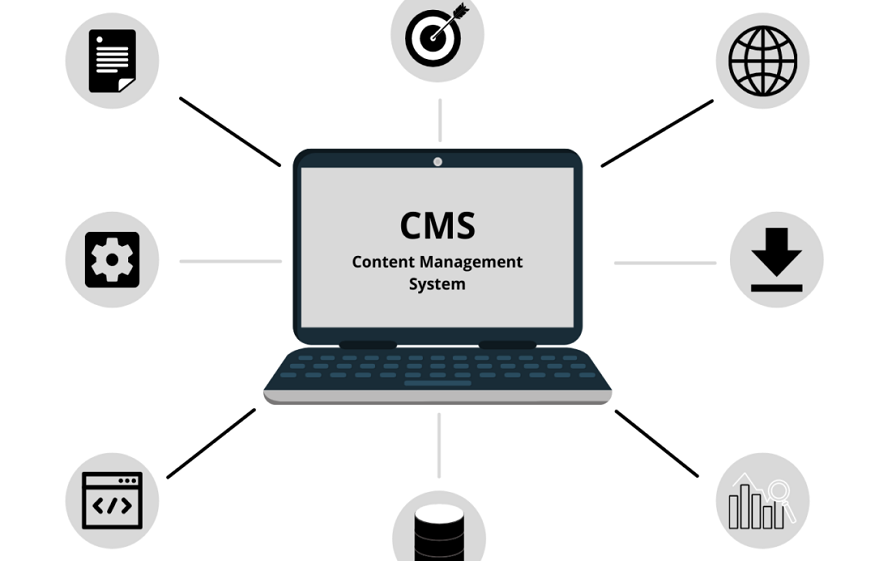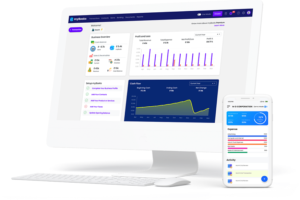From Newsrooms to Blogs: The Best CMS for Media Companies
3 min read
In today’s fast-paced digital landscape, media companies need a robust Content Management System (CMS) to deliver timely, engaging, and high-quality content. Whether it’s a large newsroom handling thousands of daily articles or a niche blog targeting a specialized audience, the right CMS can streamline content creation, management, and distribution. Choosing the ideal platform is essential for enhancing collaboration, maintaining consistency, and scaling operations effectively.
Key Features Media Companies Should Look for in a CMS
When selecting a CMS for media purposes, there are several critical features to consider:
- Scalability
Media companies often experience spikes in traffic due to breaking news or viral content. A scalable CMS ensures that your platform can handle high traffic volumes without compromising performance. - Multichannel Publishing
Content today is consumed across multiple platforms, including websites, mobile apps, email newsletters, and social media. The best CMS for media companies that supports multichannel distribution allows media companies to reach audiences wherever they are. - Workflow and Collaboration Tools
Newsrooms and large editorial teams require robust workflow management. Features like role-based access, editorial calendars, and approval processes help streamline collaboration and reduce errors. - SEO and Analytics
A strong CMS should offer tools for optimizing content for search engines and monitoring audience engagement. Analytics help editorial teams make data-driven decisions about what content resonates with their audience. - Security and Compliance
For media companies, protecting content and user data is paramount. Security features like user authentication, encryption, and regular updates ensure content remains safe from cyber threats.
Top CMS Options for Media Companies
1. WordPress VIP
WordPress VIP is an enterprise-grade version of the popular WordPress platform. It is designed for high-traffic media sites and offers a combination of flexibility, performance, and ease of use.
- Pros: Highly customizable, large library of plugins and themes, intuitive interface for non-technical users.
- Best For: Large publishers that need scalability and a wide range of features.
2. Drupal
Drupal is an open-source CMS known for its flexibility and strong security features. It is ideal for media companies that require a highly customized solution.
- Pros: Customizable architecture, excellent for complex websites, strong community support.
- Best For: News organizations with technical teams that can manage customization and maintenance.
3. Contentful
Contentful is a headless CMS, meaning it separates content management from content presentation. This approach offers maximum flexibility for distributing content across multiple platforms.
- Pros: Omnichannel delivery, API-first architecture, developer-friendly.
- Best For: Companies aiming for modern digital experiences and flexible content delivery.
4. Ghost
Ghost is a lightweight CMS that prioritizes simplicity and speed. It is particularly suitable for blogs and niche media sites.
- Pros: Clean interface, fast performance, built-in SEO and subscription management tools.
- Best For: Independent publishers, bloggers, and small media companies seeking simplicity.
5. Stibo DX (Cue)
Stibo DX, also known as Cue, is a cloud-native CMS designed for newsrooms and large-scale publishing. It emphasizes storytelling and multimedia content management.
- Pros: Advanced multimedia tools, strong multi-channel publishing capabilities, seamless integration with third-party tools.
- Best For: Large media organizations that prioritize multimedia storytelling and operational efficiency.
Factors to Consider Before Choosing a CMS
- Budget
Consider both upfront and long-term costs, including licensing fees, hosting, maintenance, and potential development expenses. - Technical Expertise
Some CMS platforms require significant technical knowledge to implement and manage. Assess whether your team has the necessary skills. - Integration Capabilities
Your CMS should integrate smoothly with other tools your organization uses, such as analytics platforms, CRM systems, and marketing automation tools. - Support and Community
A strong support system and active user community can be invaluable for troubleshooting and learning best practices. - Future Growth
Choose a CMS that can scale alongside your organization. As your media company grows, you may need additional features or the ability to manage increased traffic and content volume.
Conclusion
Selecting the right CMS is a critical decision for media companies, whether they operate as large-scale newsrooms or small, specialized blogs. Platforms like WordPress VIP and Drupal offer robust solutions for enterprise-level publishers, while Contentful and Stibo DX provide flexibility for modern, multichannel publishing. Ghost remains a great option for those who prioritize simplicity and speed.







